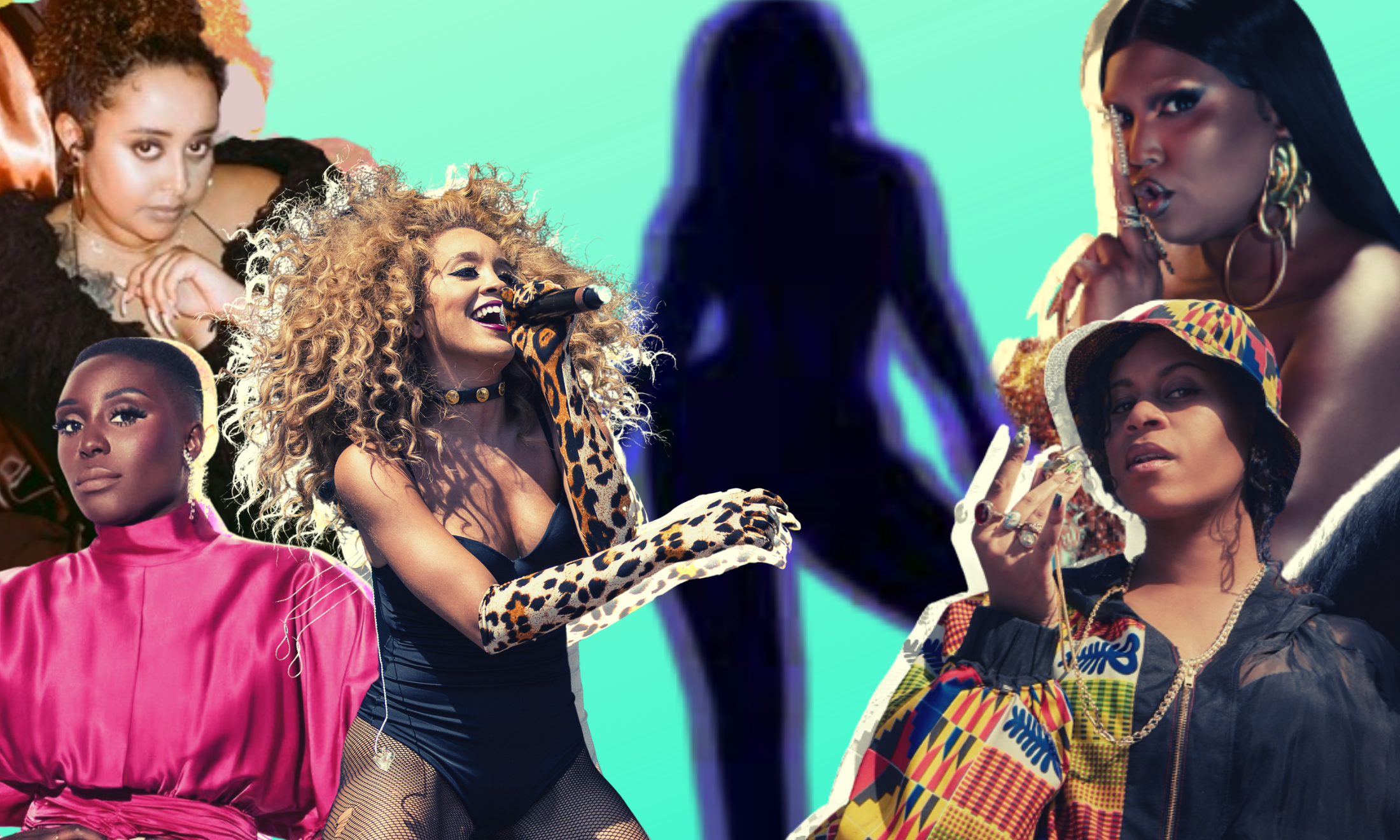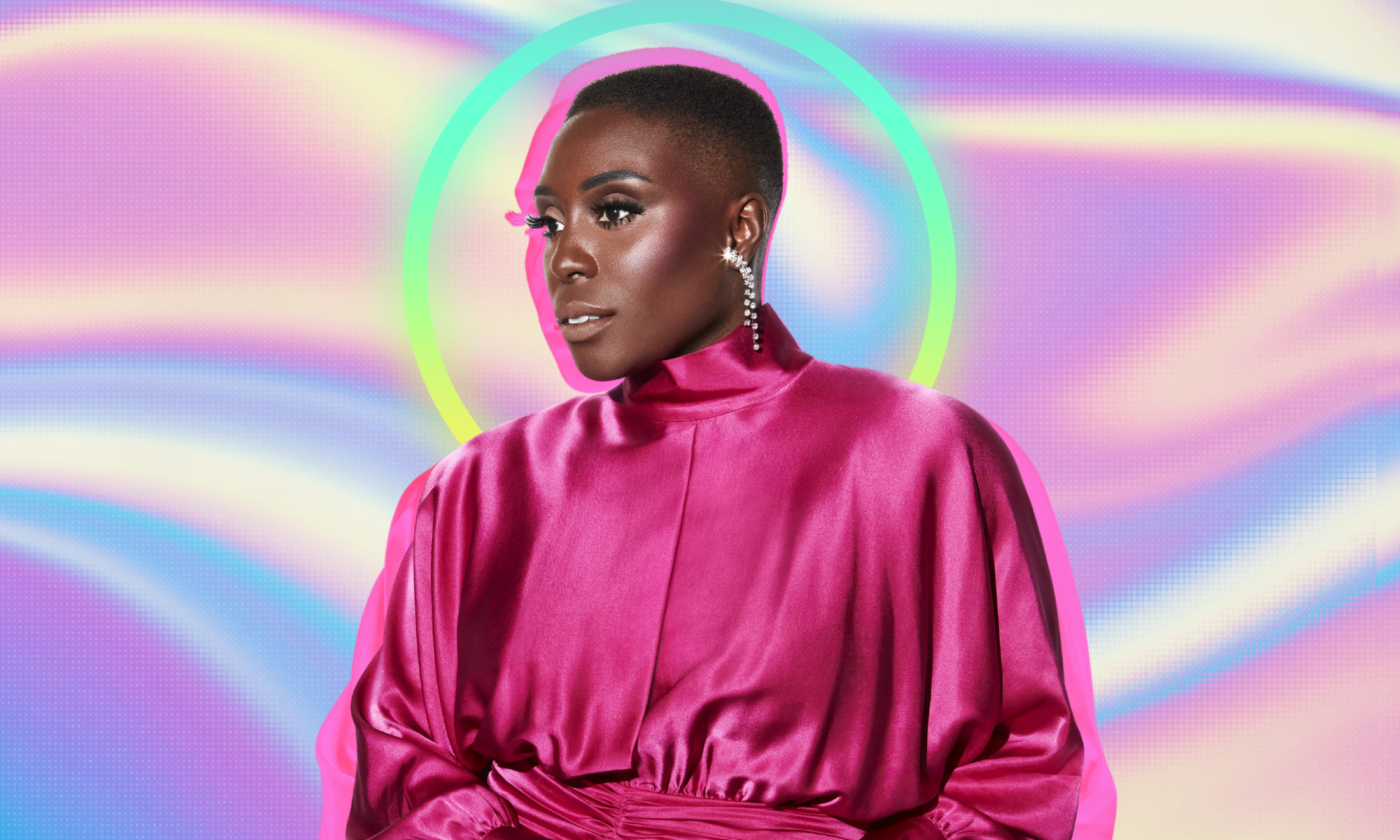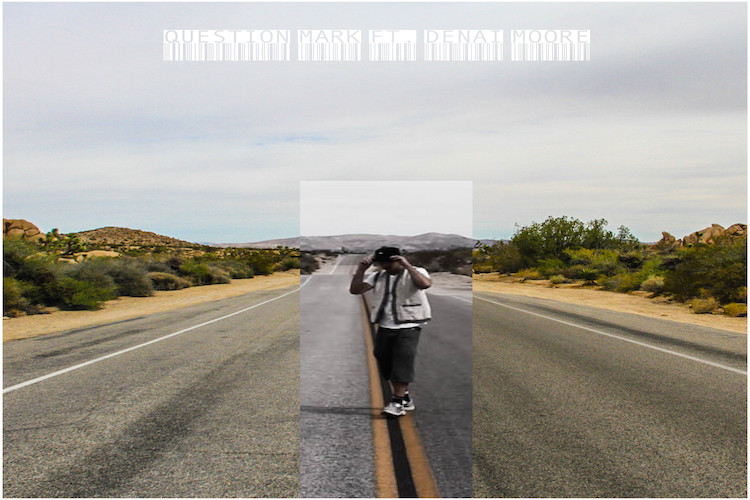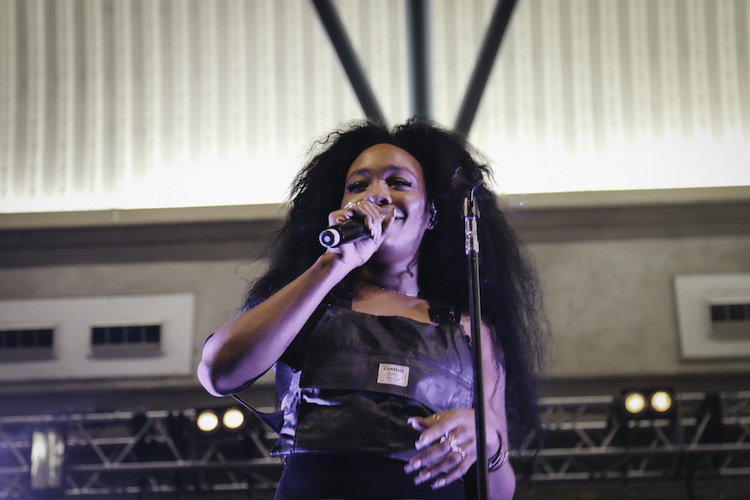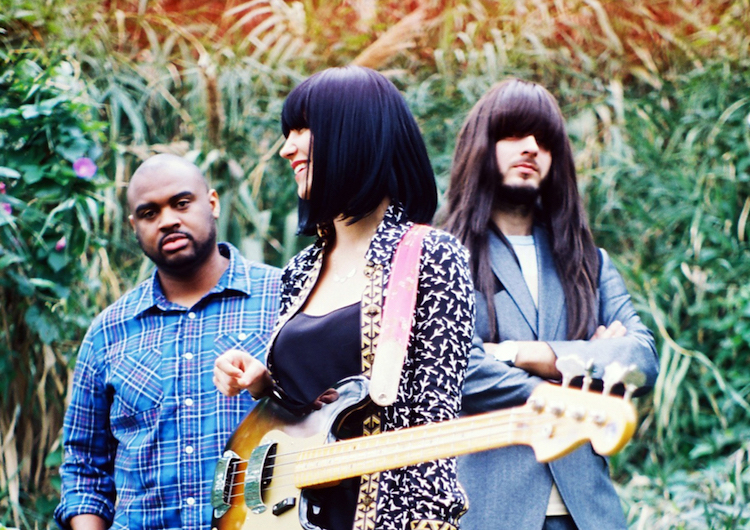
Khruangbin are a Houston-born band, and have been described as making music that sounds like it belongs in a Quentin Tarantino soundtrack. Their album The Universe Smiles Upon You was released last year and snuck its way onto our Top Twenty Albums of 2015. They performed in Bristol last month, and ahead of their gig, we caught up with them to delve a little deeper into the Thai influence that sparked their journey and process of their music-making.
What were each of your musical journeys before you guys came together?
D.J.: Mark and I played at church together. That’s how we met.
Laura Lee: I met Mark when we went on tour together and we were playing for another band. I came back saying I wanted to start a band. They knew each other already and would always go for a beer and coke every Tuesday for years.
Why the name… Khruangbin [pronounced “Kroongbin”]?
Laura: You got it! Nobody says it right – not that there’s a right way of saying it, that’s just the way we say it. It means “airplane” or “engine fly” in Thai and we were listening to a lot of sixties Thai funk when we started to play together. I think the only reference we could really see coming through when we started making music was the reference to that music. It was sort of homage to that music.
Mark: So, “airplane” – we are really trying to pull from a lot of global influences. No one place overall. It first started off being very Thai-influenced and after that it was pulled from everything and put into one mixing pot. So it’s a symbol of international influence.
So, Laura, I know that you moved to east London. I just wanted to know why you moved there when these guys were based in Texas.
Laura: I moved for romance. It’s actually been so meant-to-be – not only for my romantic interests but also because Khruangbin kicked off from me being here and it wouldn’t have happened if I stayed in Houston. I met so many people in the music industry and then all of a sudden it just came together in this amazing, natural way.
What’s the biggest challenge making music together whilst being in different parts of the world?
Mark: Time difference. If we were on the same exact clock, it probably wouldn’t be nearly as hard but, because there’s such a big shift in time, it is. And I’m sitting here like I really don’t appreciate and know it until I’m here [in the UK] and I check what time it is – like “dang!” So we try and pick times of the day we know we’re going to be free. I’m a musician and more-or-less self-employed so I can make my own hours. So every morning I wake up and I’m like, “hey Laura” –
Laura: – he texts me every time he wakes up so he can let me know that the line of communication is open again. We try to see things as an advantage. We’re in different places so there’s a bigger sphere of influence. It means we can reach more people. And with the time difference we say “we can be the band that never sleeps”.
Mark: Yeah, Khruangbin never really sleeps.
Laura: Reality is that it’s hard. But it’s not stopping us.
How often do you play together?
D.J.: Lately it’s just when we’re all together.
Laura: Yeah, when we do shows. We played some shows together last year in October, which was the first time we played live in three years –
Mark: – aside from recording the record. Recording the record, that was crunch time. We go in there for a week. It’s not really a studio, it’s just a barn. We have to negotiate everyone’s time. Make sure she [Laura] is in town at the right time. Make sure he [D.J.] is good. I’ve got to be ready to go and make sure the engineer can do it then we all just show up at the same time. Set up for a day, get the mics up, and set up all the gear. Sweep away the critters that have moved in since the last time we had been there. One time we arrived and there was a big hive of bees.
Laura: We cleared them out before D.J got there because I know he would have not been happy.
D.J.: [laughs] Not a fan.
Laura: I think there’s this idyllic sense that if you play in a barn it’s beautiful – and it is. But with nature comes nature. If it’s hot you’re sweating, if it’s cold you’re freezing; your fingers don’t work but you just have to get on with it.
Is there a reason why you guys make music in this barn?
Mark: It’s away from everything. Studios tend to be dry and controlled. There’s a certain resonance in that room.
D.J.: It’s a vibe.
Laura: The place you play in influences the way you play so much and if you’re a punk band, being in a small sweaty studio is amazing because it’s that sort of thing. It’s on Mark’s family property and they said we could have it to play in. So it was like why wouldn’t we do it here? There’s no other place like it if you want to create a unique sound and do it differently.
I saw a video of you guys playing at a Sofar gig in St. Werburghs City Farm café – is the barn anything like that?
Laura: Our barn is much bigger. That was a really small little hobbit hole, it was really sweet in that way. The barn that we play in is really huge and it’s open. You could probably fit like eight trucks in it – just to give you a reference. You can open up the doors, there’s nothing around and you can see for miles. It makes it feel easy.
Which Thai musicians inspired the formation of this band?*
Mark: Daobandon for sure, Sutrak Aksonthong, The Impossibles
Laura: They’re not Thai but The Shadows. In Thailand they call that music shadow music.
Mark: The Shadows were this instrumental surf guitar group from England. They were one of the first groups to world tour, this was before the Beatles really hit it big. They were all instrumental, played stuff like ‘Apache‘ and that same kind of surfy-reverby, twangy guitar vibe. They stopped off all over the place but when they went to Thailand, they were like, “woah, this is awesome” – and they called it Shadow music. It spawned a genre where they would take rock instrumentation, drums, bass and guitar and mix it with their own musical traditions, which, based in south-east Asia can take a range of influence, based on how they speak.
Laura: So the scales are naturally more emotive in a way and melodic. So The Shadows, even though they’re not Thai, they should be included.
Mark: That so far is just the Thai influence but since then we’ve tried to bring in a bunch of other things.
Noisey premiered your album, and they called Khruangbin’s sound “universal” and said you have a “self-contained sense of home” – which is obviously very fitting for the essence of your album. Who would you say your music is for?
Laura: It’s really funny, the more I think about it, the more I think it’s for the cows. Because when we’re playing, they are there. They’re really sweet – such amazing animals and they come and sit sometimes while we’re playing. They’re so receptive; and I kind of think that we’re playing for the listeners and that’s who I would see.
Mark: We don’t get suddenly really fast or really loud. We build it up and bring it down because we don’t want to jar the cows. I didn’t really notice before the album came out but all these different people who like different styles of music started to like it. Even my folks who are grown folks like it too. There’s no yelling and it’s not offensive in any specific way.
Laura: There’s no set influence, there’s no set audience and no set intention of what it has to be: it just is.
Mark: It’s to call the genre that way too. “What do you guys play?” “It’s kind of surfy, vibey”.
People ask me to describe the style of music you play and my response – “let me just put it on for you.”
Mark: It’s not unfamiliar. I don’t know how to peg it down.
Laura: A French blog described us as melancholy funk. You can’t say that to people when they ask you because you sound like a douche but it’s a nice thing, I think.
Who are you listening to at the moment?
Mark: I’ve been really into this singer from India named Asha Puthli.
Laura: I rarely find myself seeking out current music, but there’s a couple of recent, new French bands that I’ve been into. One’s called Papooz and this other band is called Poom.
Mark: We went to Brazil a few weeks ago and just to get into the vibe, I was listening to this huge Brazilian playlist and I found that one of my favourite people in the world, Martinho Da Vila.
Laura: Also Tim Maia’s recent collection – he’s a Brazilian funk-psyc guy and it’s an amazing collection. Usually I go for the album and not the collection but this is amazing.
Mark: A song I heard at the airport a few months back when I was leaving here to go back to Houston, sitting in the pub. I tend to get a bit nervous before a flight and I heard ‘Can’t Live With The World’ by Laura Mvula. That tune right there – woooh [points at chest] right here.
Did it calm you down?
Mark: Yeah, and I was like “what is this?” – I had to record it. I didn’t have Shazaam or WiFi and months later I played it and Shazaamed it from my own phone.
What’s in store for Khruangbin later this year?
Laura: It’s definitely our biggest year. But we’re going on tour this year, which is big. I mean last year we did a few shows which was the biggest tour we’ve had, but we’re going on a proper tour this May with Father John Misty, playing the UK and Europe and then we’ll be doing festivals in June.
Listen to Khruangbin’s Essential Thai Funk Mixtape for The Vinyl Factory here.

